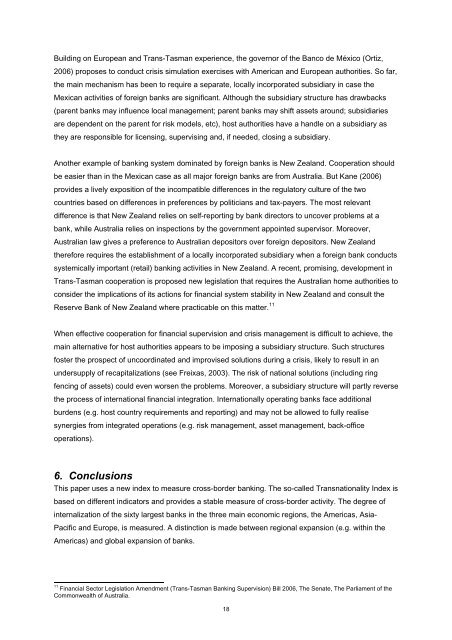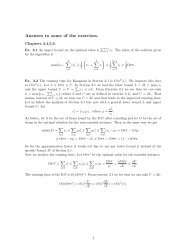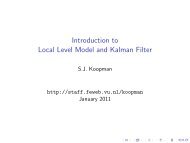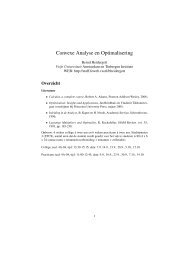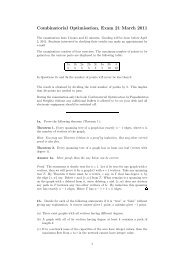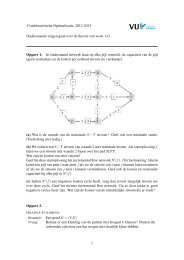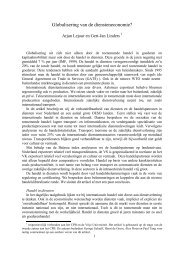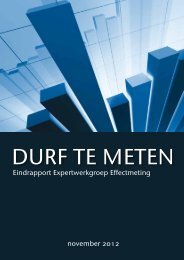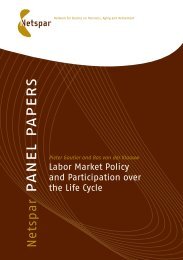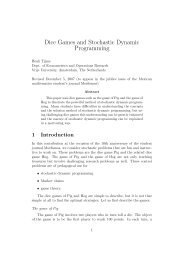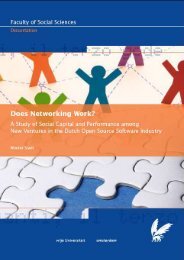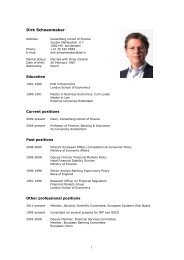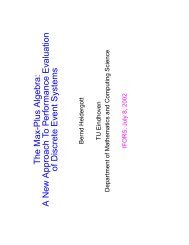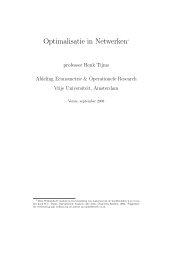Current State of Cross-Border Banking - Vrije Universiteit Amsterdam
Current State of Cross-Border Banking - Vrije Universiteit Amsterdam
Current State of Cross-Border Banking - Vrije Universiteit Amsterdam
Create successful ePaper yourself
Turn your PDF publications into a flip-book with our unique Google optimized e-Paper software.
Building on European and Trans-Tasman experience, the governor <strong>of</strong> the Banco de México (Ortiz,<br />
2006) proposes to conduct crisis simulation exercises with American and European authorities. So far,<br />
the main mechanism has been to require a separate, locally incorporated subsidiary in case the<br />
Mexican activities <strong>of</strong> foreign banks are significant. Although the subsidiary structure has drawbacks<br />
(parent banks may influence local management; parent banks may shift assets around; subsidiaries<br />
are dependent on the parent for risk models, etc), host authorities have a handle on a subsidiary as<br />
they are responsible for licensing, supervising and, if needed, closing a subsidiary.<br />
Another example <strong>of</strong> banking system dominated by foreign banks is New Zealand. Cooperation should<br />
be easier than in the Mexican case as all major foreign banks are from Australia. But Kane (2006)<br />
provides a lively exposition <strong>of</strong> the incompatible differences in the regulatory culture <strong>of</strong> the two<br />
countries based on differences in preferences by politicians and tax-payers. The most relevant<br />
difference is that New Zealand relies on self-reporting by bank directors to uncover problems at a<br />
bank, while Australia relies on inspections by the government appointed supervisor. Moreover,<br />
Australian law gives a preference to Australian depositors over foreign depositors. New Zealand<br />
therefore requires the establishment <strong>of</strong> a locally incorporated subsidiary when a foreign bank conducts<br />
systemically important (retail) banking activities in New Zealand. A recent, promising, development in<br />
Trans-Tasman cooperation is proposed new legislation that requires the Australian home authorities to<br />
consider the implications <strong>of</strong> its actions for financial system stability in New Zealand and consult the<br />
Reserve Bank <strong>of</strong> New Zealand where practicable on this matter. 11<br />
When effective cooperation for financial supervision and crisis management is difficult to achieve, the<br />
main alternative for host authorities appears to be imposing a subsidiary structure. Such structures<br />
foster the prospect <strong>of</strong> uncoordinated and improvised solutions during a crisis, likely to result in an<br />
undersupply <strong>of</strong> recapitalizations (see Freixas, 2003). The risk <strong>of</strong> national solutions (including ring<br />
fencing <strong>of</strong> assets) could even worsen the problems. Moreover, a subsidiary structure will partly reverse<br />
the process <strong>of</strong> international financial integration. Internationally operating banks face additional<br />
burdens (e.g. host country requirements and reporting) and may not be allowed to fully realise<br />
synergies from integrated operations (e.g. risk management, asset management, back-<strong>of</strong>fice<br />
operations).<br />
6. Conclusions<br />
This paper uses a new index to measure cross-border banking. The so-called Transnationality Index is<br />
based on different indicators and provides a stable measure <strong>of</strong> cross-border activity. The degree <strong>of</strong><br />
internalization <strong>of</strong> the sixty largest banks in the three main economic regions, the Americas, Asia-<br />
Pacific and Europe, is measured. A distinction is made between regional expansion (e.g. within the<br />
Americas) and global expansion <strong>of</strong> banks.<br />
11<br />
Financial Sector Legislation Amendment (Trans-Tasman <strong>Banking</strong> Supervision) Bill 2006, The Senate, The Parliament <strong>of</strong> the<br />
Commonwealth <strong>of</strong> Australia.<br />
18


